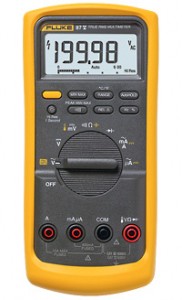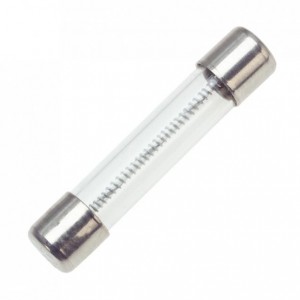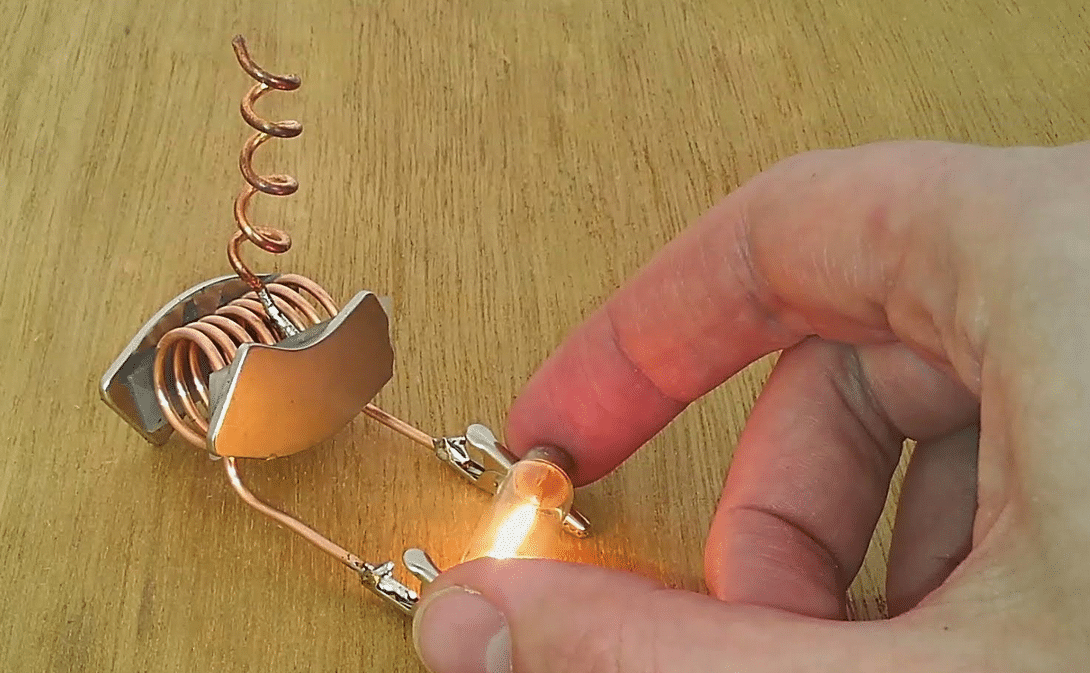
Do you have one of these?
Have you ever had to replace one of these in it?
Have you ever received what you would consider a weird and therefore incorrect reading?
Have you taken a reading twice and had inconsistent readings?
Is the magic smoke still inside? How do you know?
Are you wondering when I’ll get to my point? Point taken.
If you’re serious about the treatment and maintenance of your multimeters, you make sure that it is always used properly and only used by authorized and/or qualified individuals, right? You know exactly how it was used when you loaned it to another person in another department and that it was used correctly, right? Right?
I didn’t think so.
The thing that I’m trying to get at here is that you never know if the multimeter that you are using is actually accurate unless you do a test comparison with another like multimeter before going to use it. Or if you just opened up that sealed from the assembly-line box. Or maybe you’re one of the elite who just got it back from a calibration/recertification process.
Well, I’m here to tell you that no matter who you are, you should be among the elite. Depending on your multimeter usage, you really ought to be sending them out for a check-up. The interval at which you do so is ultimately up to you but it should be based on how you use your multimeter, how often you use it, maybe even manufacturer’s guidelines.
I’m going to break everyone down into 3 different user categories and give you my personal recommendations for how often you should have your meters checked:
- Casual user – you perform a non-critical measurements, you are the sole user or you don’t really have the funds to do calibrations often – you should send your meter out for calibration every 3 years or less.
- General user – you perform critical measurements on a regular basis or you might not be the sole user – you should send your meter out for calibration every 2 years or less.
- Heavy user – you perform critical measurements weekly or you are not the sole user – you should send your meter out for calibration every year or less.
Now, please keep in mind that I’m basing those personal recommendations on that fact that you know where your meter is, where it has been, how it has been used, etc. If at any point your meter has blown the fuse or otherwise taken an overload or it has fallen a few feet or more to the ground, don’t take a chance. Send it out for calibration. It truly is better to be safe than sorry. I don’t want to ever here about one of my co-workers having been injured or worse because of a faulty meter.
The annual cost that I have paid for calibration on a Fluke 87 III True RMS digital multimeter from Transcat has been $51 for the past 3 years.
I have personally had meters that were being used, had an incident that the user may or may not have known occurred in the meter (no external signs of an issue), went out for their annual calibration, and were in need of repair or were unrepairable and therefore were not able to be used again. If I had not sent those meters out, myself and co-workers would have picked that meter up and used it assuming that it was good. Seriously, don’t assume. DO NOT ASSUME. Don’t do it. I want you to be safe and more importantly, alive.
–got fox?




